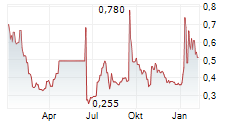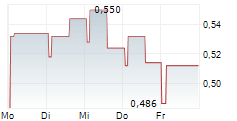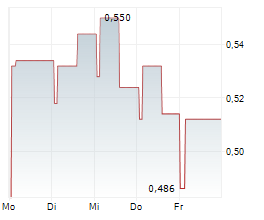
- OPM-101 will be evaluated in a Phase 1b/2a clinical trial, in combination with pembrolizumab, a monoclonal antibody directed against the PD-1 protein, in patients with advanced melanoma resistant to anti-PD1 drugs
- Phase 1b will assess the safety of 2 doses of OPM-101 administered in combination with pembrolizumab in patients with advanced melanoma; Phase 2a will evaluate the efficacy of OPM-101 in a larger number of patients treated at the recommended dose
- The study will focus on patients who are developing a resistance to their treatment with with anti-PD-1 alone or in combination (except anti-LAG-3)
- The combination of OPM-101 with pembrolizumab treatment received by patients is expected to revert the resistance by resensitizing the tumor and reduce side effects such as colitis; this beneficial effect will be assessed after 12 weeks of treatment
- This open-label clinical study is scheduled by July 2025: approximately 45 patients will be enrolled in all 2 phases, with interim safety results at the end of Phase 1b, and efficacy results in Phase 2a
- Final results from phase 1b/2a study expected by the end of 2027
Webinar in French on Tuesday April 1, 2025, at 5:30pm with Oncodesign Precision Medicine management and Professor Olivier Michielin
Register here
Regulatory News:
Oncodesign Precision Medicine (OPM) (ISIN: FR001400CM63; Ticker: ALOPM), a clinical-stage company developing innovative therapies to overcome immune evasion and drug resistance, today announced the submission to Swiss authorities of the study protocol for its Phase 1b/2a clinical trial REVERT (RIPK2 for rEsistant and adVanced mElanoma tReatmenT) with OPM-101, its RIPK2 inhibitor in advanced melanoma patients with resistance to anti-PD-1. This submission of the study protocol follows the announcement of positive results from the Phase 1 study in October 2024.
OPM-101 is a first-in-class RIPK2 inhibitor administered orally, with the potential to treat several cancers. This milestone underscores OPM's commitment to addressing significant unmet medical needs in oncology.
Globally, melanoma accounts for approximately 325,000 new cases and more than 57,000 deaths annually, with the highest incidences observed in regions such as Europe, North America, and Oceania. In Europe, the incidence of melanoma is rising, and there is an increasing focus on improving treatments for patients who develop resistance to immune checkpoint inhibitors (ICIs) like anti-CTLA4 and anti-PD1/PD-L1 therapies. Although ICIs have become a cornerstone of advanced melanoma treatment for several years, approximately 40-60% of patients experience resistance or progression, creating a pressing need for innovative therapeutic options.
In experimental cancer models, the addition of OPM-101 to anti-PD-1 antibody therapy has been shown to significantly enhance anti-tumor efficacy and promote greater sensitivity to PD-1 blockade, delaying or reducing loss of response to ICI therapy and demonstrating durable responses in preclinical models studied to date. The OPM team has shown that the underlying mechanisms of OPM-101 involve enhanced tumor antigen presentation and recognition, associated with remodelling of CD8+ T cell infiltration into the tumor stroma. Moreover, OPM-101 alone has also demonstrated significant antitumor activity based on its immunomodulatory properties.
REVERT Study Objectives and Design
This Phase 1b/2a clinical trial is an international, multicenter, open-label study designed to assess the safety and preliminary efficacy of OPM-101 in combination with pembrolizumab in metastatic melanoma patients treated with anti-PD-1 monotherapy or combination therapy (except with anti-LAG-3), and who have developed resistance to this treatment.
The trial will include around 45 patients at 10-13 sites in Switzerland, France, Italy and Spain, and will be conducted through two main phases:
- Phase 1b to assess the safety of OPM-101 in combination with pembrolizumab in patients who have developed resistance to this treatment by anti-PD1, and to select the recommended dose to be used in the second part of the study. This phase will involve a minimum of 6 patients.
- Phase 2a to assess the Disease Control Rate (DCR), safety and key biomarkers associated with immune response with the selected dose of OPM-101 in combination with pembrolizumab in patients who have developed resistance to anti-PD-1. This phase will be conducted on an expanded sample of around 35 patients.
The Phase 1b/2a study builds on the safety data from the Phase 1 study conducted in healthy volunteers (VS) in 2023-2024, which demonstrated a favorable safety profile for OPM-101 and robust pharmacokinetic and pharmacodynamic properties.
The results of Phase 1b will be used to determine the recommended dose for Phase 2a and to gather preliminary efficacy data on a limited number of patients. All data collected during this first phase will be reviewed and analyzed by an independent panel of experts forming the Data and Safety Monitoring Board (DSMB). During this open-label Phase 2a, efficacy data will be generated and reviewed on an ongoing basis, enabling trends in treatment efficacy to be identified before the interim analysis on the first 10 patients receiving the recommended dose and the final analysis on all patients. These efficacy data will be based on the analysis of images obtained for patient follow-up after 12 and 24 weeks of treatment, making it possible to define the Disease Control Rate (DCR) and the Objective Response Rate (ORR). In addition, circulating and tumor biomarkers of antitumor activity will be measured to document OPM-101's mechanism of action.
The study is coordinated by Pr. Olivier Michielin, Head of the Precision Medicine Oncology Service and Head of the Department of Oncology at Geneva University Hospitals in Switzerland.
Phase 1b of the study will start at the same time in several hospitals in Switzerland. Submission of the application for authorization of the clinical study to the Swiss regulatory authorities (Swissmedic) and to the Ethics Committees of the centers involved in phase 1b of the study, was completed on March 24, 2025. The study is scheduled to start by July 2025.
For phase 2b, patients will be enrolled in additional centers in France, Italy and Spain. Submission of the application for clinical trial authorization in these selected European Union countries will take place in the 4th quarter of 2025, in order to obtain authorization to conduct the extension phase of the study, which could start in the first quarter of 2026.
Completion of this Phase 1b/2a clinical trial is expected by the end of 2027.
"In parallel with phase 1 VS, which enabled us to build a solid foundation around the PK/PD relationship of OPM-101 in humans, we have explored the antitumor activity of our compound alone and in combination with an anti-PD1 in mice. These preclinical results, reinforced by many recent international publications, have convinced us of its major potential in oncology, which is in fact the company's primary mission.", said Philippe Genne, Chairman and CEO of Oncodesign Precision Medicine. "We are continuing to work on OPM-101's innovative mechanism of action. In the current financial climate, this study is a major choice for OPM. We are also looking for a pharmaceutical partner to explore its potential in the treatment of IBD Chronic Inflammatory Bowel Disease."
"Immunotherapy represents a real revolution for many patients suffering from many different types of cancer. This therapeutic approach is fundamentally changing the way we treat cancers by stimulating our immune system to attack and kill cancer cells. These approaches are the result of over a century of investigation and therapeutic advances. Immune checkpoint inhibitors (ICIs) such as anti-PD1s have been used for more than 10 years in several types of cancer, including melanoma and lung cancer. These therapies have proven highly effective with long-lasting responses, marking dramatic progress for many patients," added Jan Hoflack, Scientific Director of Oncodesign Precision Medicine. "Nevertheless, they come with a greater risk of toxicity including immune-related side effects, and a significant number of patients are or become resistant to these approaches. OPM-101, our RIPK2 inhibitor, has the potential to increase the response rate and reduce the side effects of these ICIs. This is what we will be evaluating in this Phase 1b/2a study in melanoma."
Prof. Olivier Michielin, Head of the Precision Oncology Service and Head of the Department of Oncology at the University Hospitals of Geneva, concluded: "Checkpoint inhibitors have revolutionized the management of melanoma. Despite high response rates in the advanced setting and clearly demonstrated long-term benefit, most patients progress under these treatments. Strategies to counteract the mechanisms of resistance to checkpoint inhibitors are therefore essential. OPM's clinical trial is therefore extremely important, as it addresses exactly this population for whom we lack therapeutic options. What's more, the prospect of being able to increase the efficacy of checkpoint inhibitors, while reducing toxicity, is of course extremely attractive and will be one of the hypotheses tested with OPM-101, as part of the study."
About OPM-101 in Oncology
OPM-101 is a first-in-class, potent, selective, orally available RIPK2 kinase inhibitor in oncology that has demonstrated the ability to maximize the immunogenicity of tumor cell death and activate a systemic anti-tumor immune response. Although initially linked to chronic inflammatory diseases, the RIPK2 pathway has been increasingly recognized since 2022 as a critical player in tumor progression. In preclinical studies, OPM-101 exhibited synergistic effects with anti-PD1 therapies, enhancing anti-tumor immunity and overcoming resistance in models treated with checkpoint inhibitors alone.
About Oncodesign Precision Medicine (OPM
Oncodesign Precision Medicine (OPM), founded in 2022, is a biopharmaceutical company specializing in precision medicine, dedicated to the discovery of treatments for resistant and metastatic cancers.
OPM currently has two kinase inhibitors in clinical trials: OPM-101, for the treatment of chronic immuno-inflammatory digestive diseases and immuno-oncology, demonstrated high target engagement and absence of toxicity in its phase I trial in healthy volunteers. Phase 1b/2a is scheduled to start at the beginning of 2025. OPM-201, initially licensed out to Servier for the treatment of Parkinson's disease, completed its Phase I trial in healthy volunteers this year and returned to the OPM portfolio. Finally, a third kinase inhibitor, OPM-102, targeting oncology, is in preclinical development.
These three molecules come from the Nanocyclix® technology platform, which enables the design and selection of small macrocyclic kinase inhibitors that are highly effective and selective. Today, we have 12,000 molecules in our library and will be using AI to accelerate the discovery of drug candidates while reducing the cost of this phase.
OPM's two other technology platforms are:
- OncoSNIPER, for the selection of therapeutic targets using artificial intelligence, in partnership with Servier for the search of targets in pancreatic cancer,
- PROMETHE® for the design and selection of radiolabeled biological molecules for systemic radiotherapy, for which we have signed a partnership agreement with Navigo and are currently discussing partnerships with other vectorization companies.
OPM, co-founded by Philippe Genne, Jan Hoflack and Karine Lignel, is based in Dijon, in the heart of the university and hospital cluster, and has 22 employees.
Further information: oncodesign.com
Forward-looking statements
This document contains forward-looking statements and estimates with respect to the financial condition, results of operations, strategy, plans and future performance of the Company and the market in which it operates. Some of these statements, forecasts and estimates can be identified by the use of words such as, without limitation, "believes", "anticipates", "expects", "projects", "plans", "seeks", "estimates", "may", "will" and "continue" and other similar expressions. They include all matters that are not historical facts. Such statements, forecasts and estimates are based on various assumptions and assessments of known and unknown risks, uncertainties and other factors, which were believed to be reasonable when they were made but which may not prove to be correct. Actual events are difficult to predict and may depend on factors beyond the Company's control. Consequently, the actual results, financial conditions, performance or achievements of the Company, or industry results, may differ materially from future results, performance or achievements as expressed or implied by such statements, forecasts and estimates. Given these uncertainties, no representation is made as to the accuracy or fairness of such forward-looking statements, forecasts and estimates. Furthermore, the forward-looking statements, forecasts and estimates speak only as of the date of publication of this document. The Company disclaims any obligation to update these forward-looking statements, forecasts or estimates to reflect any change in the Company's expectations with regard thereto, or any change in events, conditions or circumstances on which these statements, forecasts or estimates are based, except as required by French law.
View source version on businesswire.com: https://www.businesswire.com/news/home/20250324831272/en/
Contacts:
OPM
Karine Lignel
Deputy General Manager
Tel: +33 (0)310 451 820
investisseurs@oncodesign.com
NewCap
Investor Relations
Mathilde Bohin Alban Dufumier
Tel: +33 (0)1 44 71 94 95
oncodesign@newcap.eu
NewCap
Media Relations
Arthur Rouillé
Tel: +33 (0)1 44 71 00 15
oncodesign@newcap.eu



